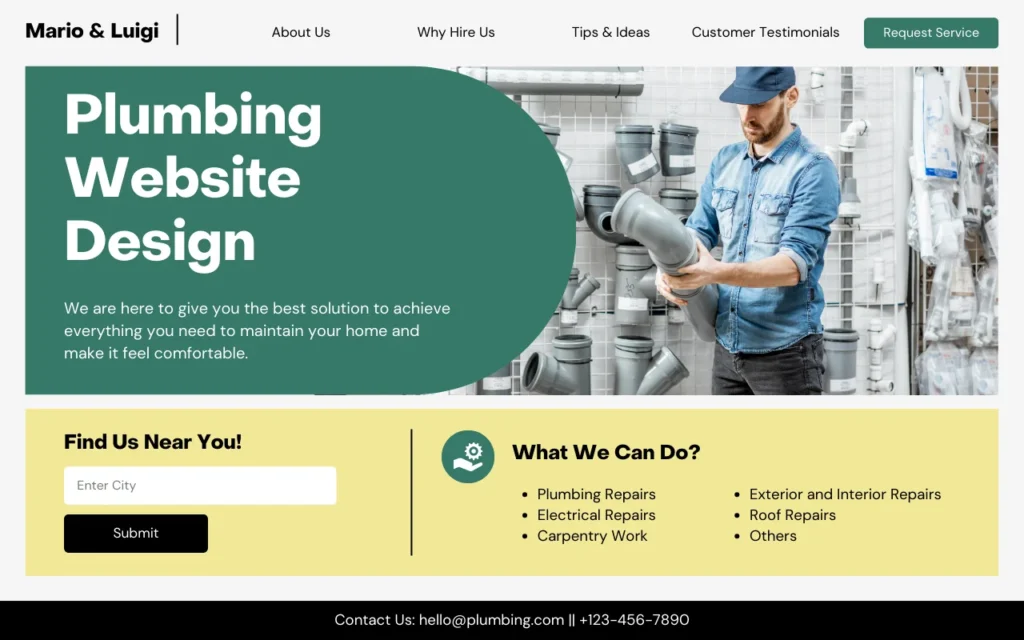In today’s digital age, your website is often the first impression potential customers have of your business. It’s your 24/7 salesperson, brand ambassador, and virtual storefront all rolled into one. But creating an effective website isn’t just about flashy designs or cutting-edge features. It’s about understanding your needs, your audience, and the technical aspects that make a website truly shine. That’s where your website developer comes in – and more importantly, that’s where the art of asking the right questions becomes crucial.
The Power of Asking Questions
Before we dive into the specific questions you should ask your website developer, let’s appreciate the art of inquiry itself. As Warren Berger, a journalist specializing in innovation, puts it: “In a time when so much knowledge is all around us, answers are at our fingertips, we need great questions in order to be able to know what to do with all that information and find our way to the next answer.”
This sentiment couldn’t be more true when it comes to working with a website developer. You might feel tempted to simply hand over the reins and say, “Make me a great website.” But by doing so, you’d be missing out on a crucial opportunity to shape your online presence and ensure it aligns perfectly with your vision and goals.
Real-World Impact of Asking the Right Questions
Let’s consider a real-world example that illustrates the importance of asking the right questions:
In 2018, a small e-commerce business, Let’s Call it “Boutique Bliss,” approached a web developer to create their online store. Initially, the business owner simply asked for a “beautiful, functional website.” The result was aesthetically pleasing but lacked crucial features for an e-commerce site, such as inventory management and secure payment processing.
After struggling with the site for months, the owner went back to the drawing board. This time, armed with specific questions about e-commerce functionality, security measures, and scalability, they worked with a new developer to create a website that not only looked great but also streamlined their operations and boosted sales by 150% in the first year.
This case underscores why asking the right questions isn’t just about getting information – it’s about setting your website and your business up for success.
Essential Questions for Your Website Developer
Let’s explore the key questions you should ask, along with insights from industry experts and explanations of why these questions matter.
1. Questions About Their Experience and Expertise
“Can you tell me about your experience in developing websites for businesses similar to mine?”
Why it matters: Different industries often have unique requirements or best practices for their websites. A developer with relevant experience will be familiar with these nuances.
Expert insight: According to Jeffrey Zeldman, dubbed “the father of web standards,” “The best web designers and developers are those who understand the specific needs of the industry they’re working in. It’s not just about code – it’s about context.”
“What programming languages and platforms are you most comfortable with, and why do you prefer them?”
Why it matters: Understanding your developer’s technical expertise can help you gauge if they’re the right fit for your project. It also opens up a discussion about the pros and cons of different technologies.
Technical detail: For instance, if a developer mentions they prefer working with JavaScript and the React framework, they might explain that React allows for the creation of dynamic, responsive user interfaces that can enhance user experience and website performance.
2. Questions About Project Management and Communication
“How do you typically communicate with clients throughout the development process?”
Why it matters: Clear communication is key to a successful project. Understanding their communication style and frequency can help set expectations from the start.
Common pitfall to avoid: Many projects go awry due to poor communication. For example, a client might assume they’ll get daily updates, while the developer plans for weekly check-ins. This misalignment can lead to frustration and delays.
“What is your typical timeline for a project of this scope, and what factors might affect this timeline?”
Why it matters: This question helps you understand the developer’s workload and how quickly they can deliver your website. It also opens up a discussion about potential challenges or delays.
Expert insight: As noted by Ethan Marcotte, the web designer who coined the term “responsive web design,” “The best projects have a clear timeline, but also build in flexibility for the unexpected. Web development is as much about problem-solving as it is about coding.”
3. Questions About Design and User Experience
“How do you approach the design process? Do you create mockups or wireframes?”
Why it matters: This question helps you understand how the developer translates your vision into a concrete design.
Technical detail: Wireframes are like the blueprint of your website. They outline the basic structure and functionality without getting into the specifics of design. Mockups, on the other hand, are more detailed visual representations of what the final website will look like. Understanding this process can help you provide more effective feedback throughout the project.
“How do you ensure the website will be user-friendly and intuitive?”
Why it matters: User experience is crucial for a successful website. Your developer should have strategies for creating a site that’s easy to navigate and use.
Expert insight: Steve Krug, author of “Don’t Make Me Think” – a seminal book on web usability – says, “Your goal should be for each page to be self-evident, so that just by looking at it, the average user will know what it is and how to use it.”
4. Questions About Technical Aspects
“How do you approach website security?”
Why it matters: With cyber threats on the rise, website security is more important than ever. Your developer should have robust strategies for protecting your site and your users’ data.
Technical detail: A good developer might mention implementing HTTPS, using secure authentication methods, regularly updating software and plugins, and employing Web Application Firewalls (WAF) to protect against common vulnerabilities.
“What steps do you take to optimize website speed and performance?”
Why it matters: A slow website can drive away visitors and hurt your search engine rankings. Your developer should have techniques for ensuring your site loads quickly.
Common pitfall to avoid: Many beautiful websites suffer from poor performance due to large, unoptimized images or excessive use of plugins. Make sure your developer has a plan to balance aesthetics with performance.
5. Questions About SEO and Marketing Integration
“How do you incorporate SEO best practices into your web development?”
Why it matters: Search Engine Optimization (SEO) is crucial for helping potential customers find your website. Your developer should be well-versed in current SEO practices.
Expert insight: Rand Fishkin, founder of Moz and a leading voice in SEO, states, “The best SEO efforts are those baked into the site architecture from the beginning, not added as an afterthought.”
“Can the website be easily integrated with marketing tools like Google Analytics or email marketing platforms?”
Why it matters: Your website should be a powerful tool in your marketing arsenal. Easy integration with other marketing tools is key.
Technical detail: A developer might explain how they can set up Google Tag Manager to easily implement and manage various marketing tags (snippets of code or tracking pixels) without having to modify the code each time.
6. Questions About Post-Launch Support and Maintenance
“What kind of support do you offer after the website is launched?”
Why it matters: Websites require ongoing maintenance and occasional troubleshooting. Understanding what support is available post-launch is crucial.
Common pitfall to avoid: Many clients focus solely on the development phase and forget to discuss ongoing maintenance. This can lead to security vulnerabilities if the site isn’t regularly updated.
7. Measuring Success
“How can we measure the success of the website after launch?”
Why it matters: It’s important to have clear metrics for success so you can evaluate the effectiveness of your new website and make data-driven decisions for future improvements.
Expert insight: Avinash Kaushik, Digital Marketing Evangelist for Google, advises, “Good metrics are comparative, a ratio or a rate, inherently normalized, and they change the way you behave.”
Technical detail: A developer might suggest setting up goal tracking in Google Analytics to measure specific user actions (like completing a contact form or making a purchase), implementing heat mapping tools to understand user behavior, or using A/B testing to optimize key pages.
The Art of Asking Follow-Up Questions
Remember, the questions listed above are just starting points. The real art lies in asking follow-up questions based on the answers you receive. As Alison Wood Brooks and Leslie K. John, professors of business administration at Harvard, advise, “favor follow-up questions.”
For example, if your developer mentions they use a particular content management system, you might ask:
- “Why do you prefer that system over others?”
- “How easy is it for non-technical users to update content in that system?”
- “What are the limitations of that system that I should be aware of?”
These follow-up questions help you dig deeper and gain a more comprehensive understanding of what your developer is proposing.
Creating a Supportive Environment for Questions
It’s important to create an environment where both you and your developer feel comfortable asking and answering questions. Remember, as Robert Waldinger, director of the Harvard Study of Adult Development, notes, “Genuine curiosity invites people to share more of themselves with us, and this, in turn, helps us understand them. This process enlivens everyone involved.”
Don’t be afraid to admit when you don’t understand something. Ask for clarification on technical terms or processes. A good developer will appreciate your engagement and be happy to explain things in terms you can understand.
Conclusion: The Ongoing Nature of Questioning
Remember, the process of asking questions doesn’t end once your website is launched. As your business grows and changes, new questions will arise. Maybe you’ll want to add new features, or perhaps you’ll need to adapt to changes in web technology or SEO best practices.
By cultivating a habit of curiosity and questioning, you’ll be better equipped to manage your website as an ongoing project rather than a one-time task. As physicist Richard Feynman would say, you’ll continue to feel “the kick in the discovery” as you learn and grow alongside your online presence.
In the end, the right questions will not only help you get the website you need but will also foster a productive, collaborative relationship with your developer. So don’t be afraid to ask, to dig deeper, and to keep learning. Your website – and your business – will be all the better for it.












